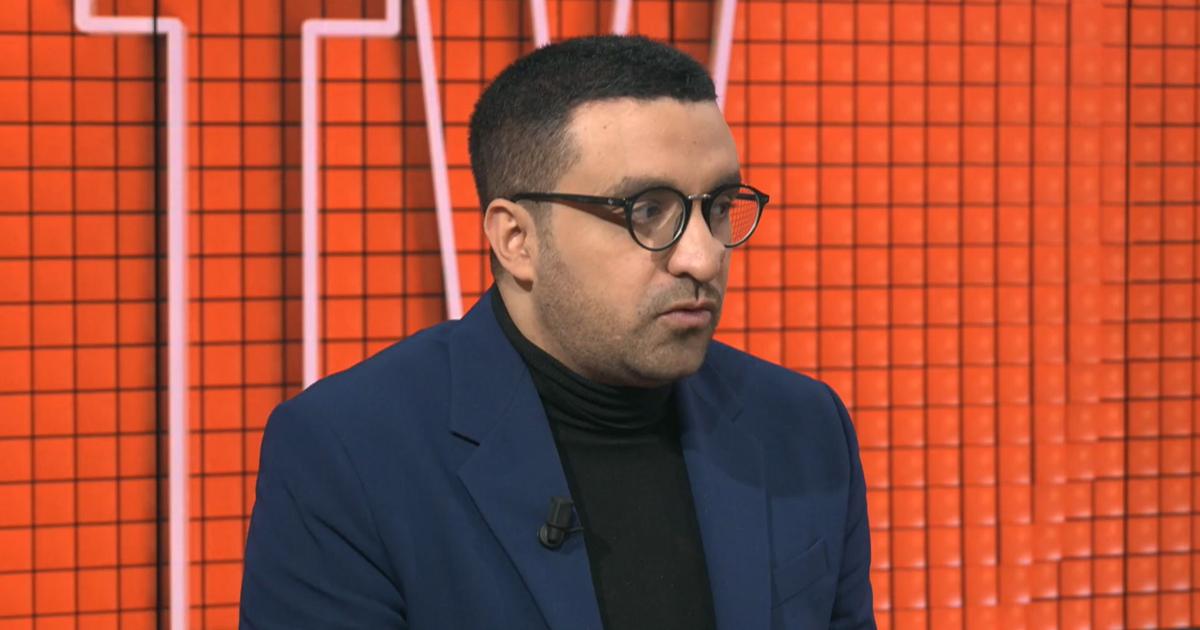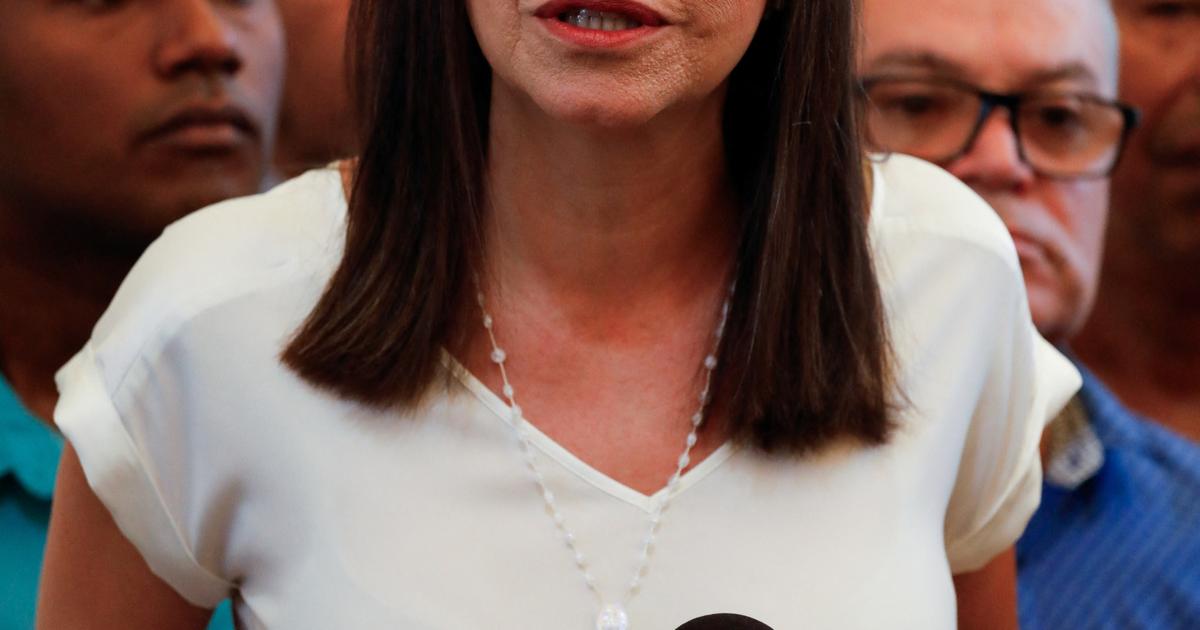France election: Severe damper for Macron – political scientist sees his image in danger
Created: 06/14/2022, 05:10
By: Bettina Menzel, Max Schäfer, Andreas Schmid, Christoph Gschoßmann
In the elections to France's new parliament, Head of State Macron received a severe setback.
His camp ends up just a hair's breadth ahead of the left-wing alliance.
All developments in the live ticker.
Parliamentary elections in France: The first election day is over.
Head-to-head race between the parties of Macron and Mélenchon.
Emmanuel Macron's alliance only narrowly wins against the left-wing alliance NUPES - but will probably still clearly retain the majority.
Le Pen rejoices
: The right-wing populist's party achieves around 19 percent.
This
news ticker for the 2022 French elections will
be continuously updated.
Update from June 13, 1:41 p.m
.: Parliamentary elections in France: In the first round, France’s head of state narrowly averted defeat – is his image now in danger?
At least that's how one political scientist sees it: "The Ensemble coalition!
loses the image of a machine that can win everything," Bruno Cautrès told
Le Parisien
newspaper .
Some ministers were at risk of not being elected in the second round on June 19.
Macron will certainly have a smaller majority in the National Assembly.
The election campaign will undoubtedly be very polarized in the remaining days.
It is about mobilizing two electorates, said the political scientist.
"On the one hand, those who most want to bring down Emmanuel Macron, and on the other hand, those who most want to give him a majority and block the way for nupes."
France election 2022: defeat for Macron in the first round of the parliamentary elections
Update from June 13, 6:29 a.m
.: In the first round of the parliamentary elections in France, Emmanuel Macron’s center alliance narrowly missed defeat.
The president's camp received 25.75 percent of the vote.
The alliance of left-wing politician Jean-Luc Mélenchon, made up of leftists, communists, greens and socialists, is just behind with 25.66 percent.
The difference was only about 20,000 votes nationwide.
The result is seen as a bitter defeat for Macron.
Marine Le Pen's right-wing Rassemblement Nationa (RN) received 18.68 percent of the vote.
The Republicans, who are currently the strongest opposition force in the National Assembly, brought in 10.42 percent.
In the decisive second round of the election next Sunday (June 19), a clear victory is still expected for the middle camp.
This is due to the complicated majority voting system.
Of the 577 mandates to be awarded, only two were directly decided in the first round.
The rest will be disputed in the second ballot.
There, at least the two first-placed voters from each voting district and all those who received more than 12.5 percent of the votes of all registered voters face each other.
The left-wing alliance is forecast to have 150 to 210 seats, Macron's alliance 255 to 310, which could be enough for an absolute majority.
also read
German arms fiasco in Ukraine deliveries: Scholz apparently surprised everyone - with dire consequences
"The unthinkable has happened": Lavrov rages after airspace blocking for Serbia trip
France election: projections point to a head-to-head race
Update from June 12, 11:05 p.m
.: The polling stations in France have been closed for three hours.
The projections point to a neck-and-neck race between Macron's coalition and the Left Alliance.
The government alliance will still get the majority of the seats, which is due to the complicated electoral system in France.
However, they seem to miss an absolute majority, which would be a defeat for President Macron.
A final result of the first election day is not expected until the night.
The second round will take place on June 19th.
Emmanuel Macron is looking forward to the results of the parliamentary elections in France.
© IMAGO/Gao Jing
Update from June 12, 10:20 p.m.:
It is still unclear whether the Macron Alliance will get the absolute majority in the parliamentary elections in France.
According to estimates by several election research institutes, Macron's party and its allies will have between 255 and 310 seats on Sunday.
289 seats are needed for an absolute majority.
Meanwhile, it is clear that Macron has a new main opponent in Parliament.
The left-wing alliance Nupes will take the place of the conservative Republicans.
It will probably become more difficult for the president to push through his reforms in his second term.
The pension reform in particular is controversial.
While Macron wants to raise the retirement age from 62 to 64 or 65, left-wing candidate Mélenchon is vehemently calling for retirement at 60. However, it is not very likely that Mélenchon will become prime minister, as he had publicly aimed to do.
France election: government members tremble for political career - Zemour already out
Update from June 12, 10 p.m
.: 15 members of the government also ran for the parliamentary elections themselves.
They risk their government post if they don't win.
According to Prime Minister Elisabeth Borne, she is ahead in her constituency.
The new Environment Minister Amélie de Montchalin ( (La République en Marche, i.e. Macron's party) is well behind the left-wing alliance candidate in her constituency. The far-right ex-presidential candidate Eric Zemmour, who ran in Saint-Tropez, is already after the first round retired.
Update from June 12, 9:30 p.m .:
French Prime Minister Élisabeth Borne sees the Macron Alliance as the clear winner of the parliamentary elections in France: “We are the only political force that is able to get a majority in the National Assembly.”
Update from June 12, 9:10 p.m .:
The leader of the left-wing party alliance in France, Jean-Luc Mélenchon, sees the result of the first round of the parliamentary election as a clear defeat for his opponent and French head of state Emmanuel Macron.
"The truth is that the presidential party was beaten and defeated in the first round," Mélenchon said in Paris on Sunday evening.
According to projections, the new left-wing alliance of leftists, communists, greens and socialists was roughly on a par with Macron's center alliance.
Forecasts saw Macron's camp clearly ahead in the distribution of seats after the second round of voting in a week.
Mélenchon said this was only to maintain an illusion.
His alliance landed in first place.
The background is the electoral system in France, from which Macron seems to benefit.
France election LIVE: Le Pen party comes to around 19 percent
Update from June 12, 8:55 p.m .:
Also at the start of the parliamentary elections in France: France’s rights.
Right-wing populist Marine Le Pen welcomed an "immense victory" and described it as "important that Emmanuel Macron does not have an absolute majority, which he will abuse to use his self-centered and brutal methods".
According to the projections on Sunday evening, Le Pen's party came to 18.9 to 19.2 percent.
According to the forecasts, she can only hope for 10 to 45 of the 577 seats in parliament.
15 seats are required to be represented as a political group in Parliament.
Marine Le Pen also wanted to become President of France - but failed in April because of Emmanuel Macron.
© Michel Spingler/AP/dpa
Update from June 12, 8:40 p.m .:
According to the first figures from Paris, voter turnout in the parliamentary elections in France is 53 percent.
That is five percentage points more than in the 2017 election, the poll with the lowest value.
France election LIVE: Macron alliance benefits from electoral system
Update from June 12, 8:25 p.m .:
According to forecasts for the distribution of seats, the Macron camp will have around 255 to 310 of the 577 seats in the National Assembly.
It is unclear whether an absolute majority of at least 289 seats will be achieved.
The result is a success for the new left-wing alliance.
However, the forecasts give them only about 150 to 210 of the seats.
The differences between the percentage of votes and the distribution of seats can be explained by the complicated electoral system.
In the end, only the votes for the winner in the respective constituency count.
France election LIVE: Macron Alliance and left in projections on a par
Update from June 12, 8:15 p.m .:
Projections for the French election see Macron’s center camp and the left alliance on a par.
(see previous update).
Macron still seems to have won the election.
His "ensemble" is heading for a majority in the National Assembly.
When it comes to the distribution of seats after the second round of voting, forecasts assume that the liberal president's camp will have a clear majority.
Left-wing populist Jean-Luc Mélenchon from Allianz Nubes is likely to fall victim to the French electoral system.
According to estimates by opinion institutes, however, it is unclear whether they will also receive the absolute majority of 289 seats.
In France, majority voting applies.
It favors electoral alliances and usually leads to clear majorities in parliament.
The party that performs best often has a disproportionately strong representation in parliament.
In the end, only the winners of the respective constituencies count
Update from June 12, 8 p.m.:
The approximately 70,000 polling stations in France are closed – and the first projections are there.
Emmanuel Macron's voter alliance is on par with the left-wing alliance Nupes.
According to initial projections, both will get 25 to 26 percent in the first round of the election.
Jean-Luc Mélenchon (left) leads the left alliance.
In projections, he is on par with Macron's government alliance.
© Joel Saget/AFP
France election LIVE: Voter turnout forecast
Update from June 12, 7.40 p.m .:
New figures on voter turnout in France.
Opinion research institutes estimate a final voter turnout of 52.5 to 53 percent.
Voter turnout in 2017 was at an all-time low of 48.7 percent in the first round and 42.6 percent in the second round.
Update from June 12, 7 p.m.:
In the first round of the French parliamentary elections, around two out of five voters cast their votes by the afternoon.
According to the Ministry of the Interior, voter turnout on Sunday up to 5 p.m. was 39.42 percent.
In the previous election to the National Assembly in 2017, it was slightly higher at the same time with 40.75 percent.
Update from June 12, 6 p.m.:
The polling stations in France are still open for two hours.
Unlike in Germany, where federal elections end at 6 p.m., for example, the French can cast their votes until 8 p.m.
This is when the so-called exit polls are published.
France election live: Macron votes
Update from June 12, 5:30 p.m
.: In the meantime, President Emmanuel Macron has also cast his vote.
The head of state voted together with his wife Brigitte in the seaside resort of Le Touquet-Paris-Plage.
France, Le Touquet: Emmanuel Macron and his wife Brigitte Macron after casting their votes in the first round of the French general election © Ludovic Marin/Pool AFP/AP/dpa
France election live: Head-to-head race between Macron alliance and Nupes
Update from June 12, 4:04 p.m
.: In the parliamentary elections in France, there are many indications of a close race between President Macron’s government alliance and the left-green alliance Nupes.
Both alliances had already been neck and neck in the elections for French expatriates.
Update from June 12, 1:41 p.m
.: Concern about turnout in parliamentary elections in France: According to the Ministry of the Interior in Paris, it was 18.43 percent by noon – that’s almost every fifth eligible voter.
That was 0.8 percent less than at the same time five years ago.
Update from June 12, 12:42 p.m
.: The first numbers on the outcome of the parliamentary election are expected for 8 p.m.
The right-wing populist Rassemblement National (RN) party led by Marine Le Pen could form its own parliamentary group for the first time with at least 15 MPs.
Their predecessor party FN was last able to do this in 1986.
Update from June 12, 10:52 a.m
.: Should the left-green alliance Nupes around Mélenchon
(see previous update)
win the absolute majority, Macron would lose a large part of his political power.
In addition to Mélenchon's La France Insoumise party, Nupes also includes the Socialists, the Greens and the Communists.
Mélenchon had introduced himself as prime minister.
France election 2022: Left populist could be dangerous for Macron - notorious for Merkel tweet
Update from June 12, 10:05 a.m
.: Don't forget this tweet: "Shut up, Ms. Merkel!
France is free.” Jean-Luc Mélenchon deposed him in 2014 after ex-Chancellor Angela Merkel called for reforms.
How dangerous can the left-wing populist become for Emmanuel Macron?
The veteran Mélenchon is a shrewd speaker and strategist.
In third place, he was eliminated in the first round despite 22 percent.
Nonetheless, current polls indicate that the new left-wing alliance is on the up - and Mélenchon has a surprising number of votes, say observers.
Why is that?
France expert Ronja Kempin from the Science and Politics Foundation has an explanation.
Since many voters wanted to avoid another runoff between Macron and Le Pen, many voted for Mélenchon in the first round of voting.
"In 2022, the French voted not according to their hearts, but according to reason in the first ballot," said Kempin to
t-online
.
The Socialists, Greens or Communists would lose out.
Jean-Luc Mélenchon delivering a campaign speech © OLIVIER CHASSIGNOLE/AFP
France election 2022: low turnout in parliamentary elections?
Update from June 12, 8.35 a.m
.: Are the French elections of 2022 of interest to the French at all?
The polling stations just opened.
However, there were signs of a low in turnout - according to surveys, fewer than every second person wanted to cast their vote.
The second round of parliamentary elections is on June 19th.
For the center politician Macron, it is about securing a parliamentary majority again.
Otherwise he would be forced to appoint a government with politicians and a prime minister from other camps.
In this case, the prime minister would have a much more important position in the state.
In particular, the new left-wing alliance is hoping for significantly more seats in parliament - polls have recently seen an upswing.
France election: High proportion of women among the candidates
Update from June 11, 7:00 p.m.:
Never before in France have there been as many female candidates for election as this year.
In the 2022 general election, 44.1 percent of the candidates are women.
In 2017 it was 42.4 percent, in 2012 the proportion of women was 40.1 percent, as reported by the French newspaper
Le Monde
.
On Sunday from 8 a.m. the approximately 48.7 million registered voters can cast their vote.
The 577 seats in the National Assembly are voted on.
The second round of parliamentary elections is a week from Sunday.
Parliamentary elections in France: Turnout could be lower than ever
Update from June 11, 4:24 p.m .:
Around 48.7 million voters are registered in this year’s parliamentary elections in France.
However, there were signs of a low in turnout, with fewer than every second person wanting to vote according to surveys.
Five years ago, the abstention rate was 51.3 percent - political observers assume that this negative record could well be broken.
Political scientist Vincent Tiberj told AFP that it was a "chloroform campaign" that "can only produce poor turnout in the end."
However, low turnout does not affect all parties equally.
In theory, according to France24
, the older electorate of Macron's "Ensemble!" party should be
more likely to go to the polls than younger working-class voters, who tend to vote for left-wing populist Jean-Luc Mélenchon, for example.
Mélenchon's left-wing coalition, called Nupes, is almost level with Macron's party and its allies in the latest parliamentary election polls.
French general election starts in overseas territories
Update from June 11, 1:04 p.m .:
The first round of the French parliamentary elections has officially begun.
On the small French archipelago of Saint-Pierre and Miquelon off the east coast of Canada, the first three polling stations opened on Saturday afternoon (8 a.m. local time), as a spokeswoman for the town hall in Saint-Pierre confirmed to the German Press Agency.
The majority of French people can vote on Sunday.
Because of the time difference, voting in some overseas territories will already take place on Saturday.
Shortly after President Emmanuel Macron was re-elected for a second term, the French are electing a new parliament.
The 577 seats in the National Assembly are voted on.
For the center politician Macron, it is about securing a parliamentary majority again.
Otherwise he would be forced to appoint a government with politicians and a prime minister from other camps.
France election: Macron party wobbles - expert with meaningful prognosis
First report from June 9, 1:58 p.m.:
Paris – In the parliamentary elections in France, the French vote on who will represent them in the National Assembly in the future.
At the same time, the election is also a vote on Emmanuel Macron, who has just been re-elected.
As president, he holds the most important political office with a range of powers, but legislation is a matter for parliament.
The Prime Minister, who is the head of the government and determines the politics of the Grande Nation, is also appointed from the majority of these.
France election: Macron allies under pressure ahead of parliamentary elections
In order for Macron to push through his planned reforms, including pensions, his alliance “Ensemble!” must win a majority in parliament in the parliamentary elections.
However, the planned pension reform has been sharply criticized.
The government installed by Macron after the presidential election has also made mainly negative headlines since then.
Parliamentary elections in France | |
|---|---|
Elected institution | national assembly |
right to vote | majority voting |
How often is elected? | Every five years |
number of constituencies | 577 |
First ballot | Sunday 12 June 2022 |
Second ballot | Sunday 19 June 2022 |
Two women made allegations of rape against Solidarity Minister Damien Abad.
Although he rejects her, he is still threatened with an investigation.
Interior Minister Gérald Darmanin has also been criticized for the chaos at the Champions League final in Paris.
France election: Macron party's lead is shrinking
Accordingly weakened, Macron, his party La République en Marche and their alliance “Ensemble!” are going into the parliamentary elections.
According to a survey by the BVA Institute, just 35 percent of people in France would like Macron's party to get a majority.
And Macron supporters also have to fight in polls on voting intentions before the French election.
According to a recent survey by the opinion research institute Ifop, "Ensemble!" is one percentage point behind the left-wing alliance NUPES led by left-wing radical Jean-Luc Mélenchon.
According to forecasts on the distribution of seats after the parliamentary elections, "Ensemble!" will retain the majority in the National Assembly - the first-past-the-post system helps the Liberals - but the lead is shrinking here too.
Parliamentary elections in France: Mélenchon wants to become head of government with the help of the left-wing alliance NUPES
A lot can change before the decision of the parliamentary elections in France on June 19, the day of the runoff elections in the constituencies.
In view of the first-past-the-post system, pollster Brice Teinturier also warns: "One or two percentage points more or less can mean that 40 to 50 seats change sides," he told the France Inter broadcaster.
The foreseeable low turnout of 44 to 48 percent can also have a major impact on the outcome of the French election.
That's what Jean-Luc Mélenchon, who as a candidate in the 2022 presidential election in France just barely missed making it into the run-off, is hoping for.
Shortly thereafter, however, he brought himself into play as prime minister.
Mélenchon can already claim one success for himself: he has united the traditionally divided left in France, from social democrats to Greens to communists, in the "New Ecological and Social People's Union" (NUPES).
France election: Opposition goes into parliamentary elections stronger
NUPES wants to use the criticism of Macron's planned increase in the retirement age from 62 to 65 and the general concerns of many French people about inflation to win the parliamentary majority in the French elections.
Then Macron would have to appoint a left-wing prime minister.
But even if NUPES does not have a majority in the National Assembly after the French elections, as current polls suggest, the left-wing alliance forms a strong opposition.
Marine Le Pen and her Rassemblement National will definitely find themselves in that role.
For the first time since 1986, right-wing extremists will be represented in parliamentary groups in the National Assembly after the parliamentary elections.
When will the general elections in France be decided?
The first meaningful forecasts and projections for the French election will be available after the first ballot on Sunday (June 12).
Because candidates must receive an absolute majority of the votes in the first ballot and their votes must be at least 25 percent of registered voters to be elected, the decision will not come until June 19 in most constituencies.
(ms/AFP)















